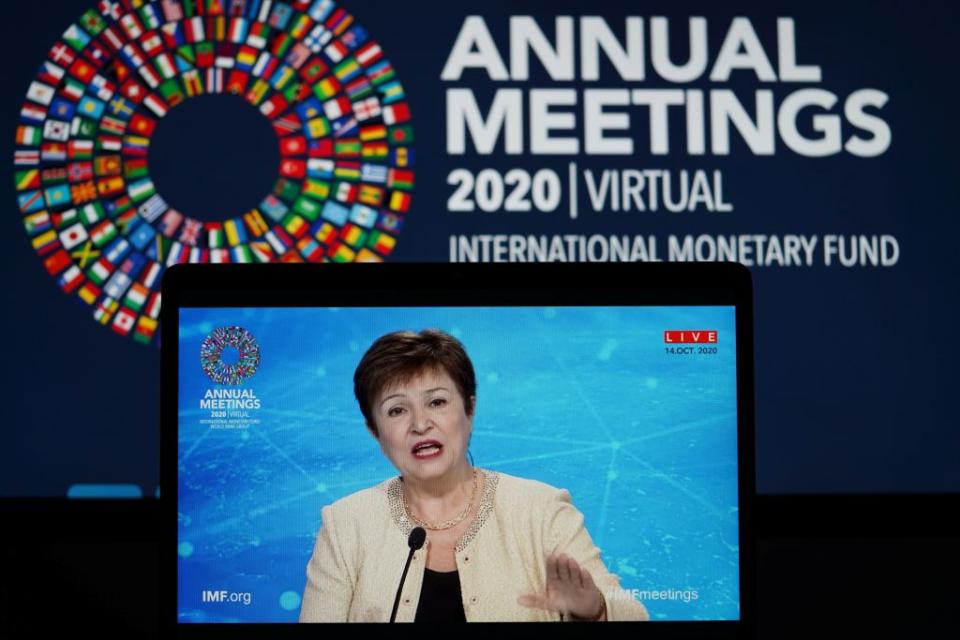‘Long-lasting scars’: IMF’s dire warning about the global economy

Under normal circumstances, the International Monetary Fund’s (IMF) job is to monitor global and national economic developments and promote economic stability and growth.
During the global pandemic, however, the organisation’s efforts have turned to helping countries manage the crisis and lessen the impact of the global recession.
But in a recent communiqué, an IMF panel of 24 members responsible for keeping tabs on worldwide events likely to disrupt the world’s financial system listed obstacles that could permanently affect global economic recovery.
“The recovery is partial, uneven, and marked by significant uncertainty, with the pandemic continuing to spread in places,” said the International Monetary and Financial Committee (IMFC).
“The crisis threatens to leave long-lasting scars on the global economy, such as weaker productivity growth, heavier debt burdens, heightened financial vulnerabilities, and higher poverty and inequality,” the panel added.
“Other longstanding challenges also persist.”
Also read: ‘Conspicuously missing’: 4 things wrong with the Treasurer’s jobs plan
Also read: Recession 2020: What will happen to the cost of living?
Also read: $90 billion needed to save Australia’s economy: report
In closing remarks at a news conference streamed by Yahoo Finance, IMF’s managing director Kristalina Georgieva said the world was facing a “crisis like no other”.
“It calls for steps to enable a recovery like no other.”
Developed countries called on to assist ‘vulnerable’ states
The panel also flagged that “international cooperation” would be needed to fast-track research, development, manufacturing and distribution of Covid-19 vaccines.
But, they added, this had to have the “aim of supporting equitable and affordable access for all, which is key to overcoming the pandemic and supporting global economic recovery”.
The IMF panel signalled further finance for poorer countries, committing to “working together to help vulnerable countries meet their financing needs”.
It welcomed a six-month extension of debt payment suspensions that was approved by the G20 on Wednesday, but said more needed to be done for developing countries.
“We call on the IMF to prepare an analysis of the external financing needs of developing countries and sustainable financing options,” the panel said.
Securing equal access and support for “vulnerable” countries was a priority.
“Ensuring that the IMF can support its poorest and most vulnerable members, which do not have substantial market access, is essential.”
Australia officially entered its first recession in 30 years on 2 September, when ABS figures released that day revealed the nation’s GDP had fallen by 7 per cent in the June quarter.
It marked the worst economic growth in 61 years, and followed a 0.3 per cent drop in GDP over the March quarter.
It has plunged the country into a $214 billion deficit, the highest since World War II. More than a million Australians have lost their jobs, and 900,000 businesses have turned to Government assistance.
The Morrison Government’s 2020-21 Federal Budget was centred on creating “jobs, jobs jobs,” but prominent economists have criticised the plan for failing to outline structural reforms that would boost productivity and benefit Australia in the long-term.
Make your money work with Yahoo Finance’s daily newsletter. Sign up here and stay on top of the latest money, economy, property and work news.
Follow Yahoo Finance Australia on Facebook, Twitter, Instagram and LinkedIn.

 Yahoo Finance
Yahoo Finance 
